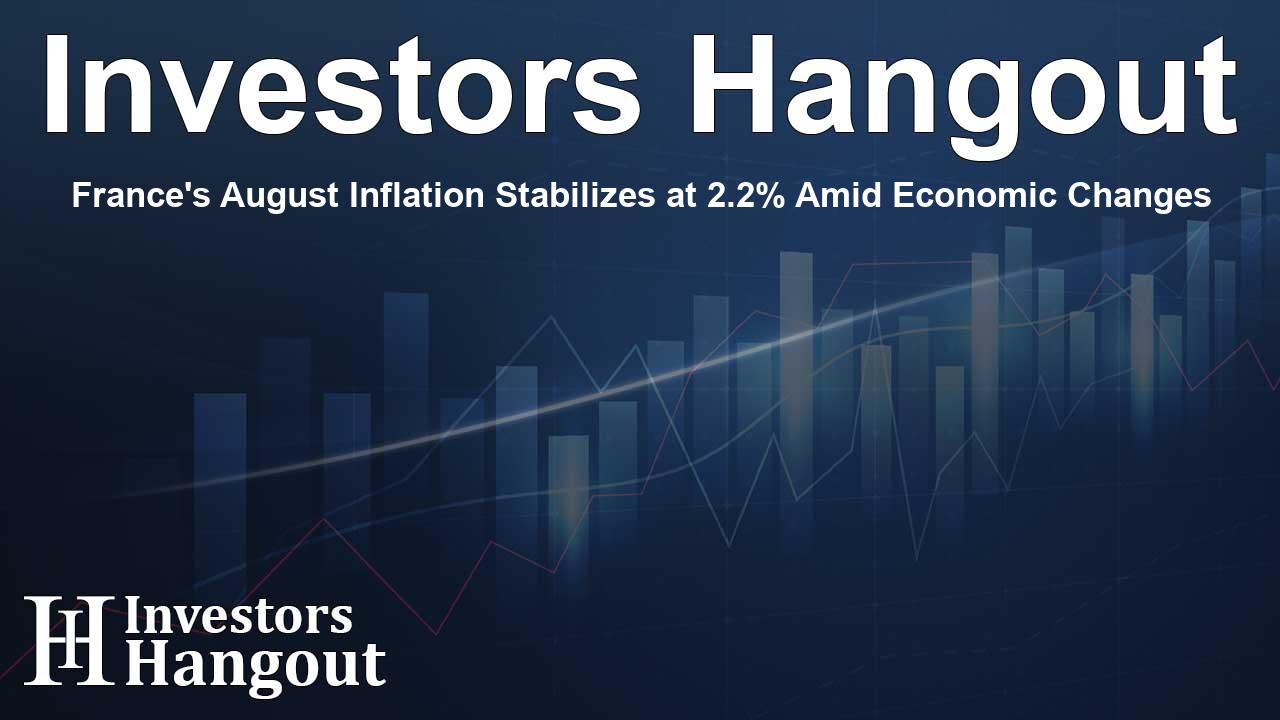France's August Inflation Stabilizes at 2.2% Amid Economic Changes

France's Inflation Rate Holds Steady at 2.2%
Recent reports indicate that consumer prices in France experienced a year-on-year increase of 2.2% in August, as confirmed by the national statistics office, INSEE. This figure aligns with prior forecasts and reflects the preliminary readings announced previously.
Factors Influencing Inflation
The inflation rate in France, being the second-largest economy in the European Union, showcased a notable slowdown compared to the previous month, where the inflation rate recorded was 2.7%. This decrease primarily stems from significant reductions in energy pricing, especially in electricity, alongside a drop in the costs of petroleum products. Despite these declines, other price categories, such as services and food, witnessed increases when compared to the same timeframe last year.
Energy Prices and Their Impact
Energy prices have a profound influence on inflation rates, and the August figures reflect a sharp deceleration in this sector. The decline in electricity prices has contributed substantially to the overall decrease in inflation, marking a positive turn for consumers who have felt the pinch of rising energy costs in previous months.
Prices of Goods and Services
While energy prices have diminished, the prices of services and food have seen an uptick. This increase suggests a growing demand or potential supply chain issues pushing prices higher in these sectors. On the other hand, manufactured goods and tobacco prices have remained stable, highlighting disparities in inflationary pressure across different categories.
Monthly Price Changes
Looking at the month-on-month changes, prices in August saw an increase of 0.6% after a smaller rise of 0.2% in July. This modest rise indicates some resilience in the pricing landscape, suggesting that while year-on-year inflation has stabilized, there remains an upward pressure on monthly consumer expenses.
Analysts' Expectations
Market analysts had anticipated a preliminary EU-harmonized inflation figure of around 2.2% for August, which has now been confirmed. This stability gives insights into the economic conditions France faces and how it may influence future monetary policies. The current inflation scenario prompts observers to analyze the potential impacts on European Central Bank decisions and broader economic strategies.
Frequently Asked Questions
What is the current inflation rate in France?
The inflation rate in France for August is 2.2% year-on-year.
How does the August inflation compare to previous months?
In August, inflation decreased from 2.7% reported in July, indicating a slowdown.
What factors are contributing to the inflation rate?
The inflation rate is significantly affected by energy prices, particularly electricity, and the prices of goods and services.
Are food and services prices increasing?
Yes, compared to last year, prices for services and food have increased.
What does the monthly rise in prices indicate?
The 0.6% monthly increase reflects some upward pressure on consumer prices despite the stabilization of year-on-year inflation.
About The Author
Contact Logan Wright privately here. Or send an email with ATTN: Logan Wright as the subject to contact@investorshangout.com.
About Investors Hangout
Investors Hangout is a leading online stock forum for financial discussion and learning, offering a wide range of free tools and resources. It draws in traders of all levels, who exchange market knowledge, investigate trading tactics, and keep an eye on industry developments in real time. Featuring financial articles, stock message boards, quotes, charts, company profiles, and live news updates. Through cooperative learning and a wealth of informational resources, it helps users from novices creating their first portfolios to experts honing their techniques. Join Investors Hangout today: https://investorshangout.com/
The content of this article is based on factual, publicly available information and does not represent legal, financial, or investment advice. Investors Hangout does not offer financial advice, and the author is not a licensed financial advisor. Consult a qualified advisor before making any financial or investment decisions based on this article. This article should not be considered advice to purchase, sell, or hold any securities or other investments. If any of the material provided here is inaccurate, please contact us for corrections.
